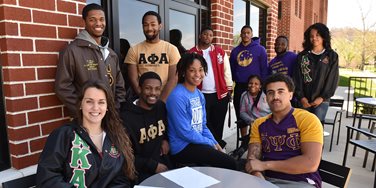The curriculum at West Virginia State University creates citizen-scholars by preparing students to take active roles within a democratic society while giving them the tools to face 21st Century challenges. To this effect, the curriculum works to foster knowledge across a broad range of liberal arts and science disciplines while helping students gain four specific competencies upon graduation. These Essential Graduation Competencies are listed below:
- Knowledge of Human Cultures and the Physical and Natural World
- Demonstrate knowledge of the sciences and mathematics, wellness, social sciences, humanities, histories, international perspectives, and the arts in the context of both contemporary and enduring questions
- Intellectual and Practical Skills Needed to Engage in 21st Century Challenges
- Practice Inquiry and analysis
- Employ critical and creative thinking
- Communicate effectively
- Apply both quantitative and qualitative approaches to problem solving and evaluation
- Practice effective collaboration/teamwork
- Personal and Social Responsibility
Model civic knowledge and engagement
Demonstrate understanding of multiculturalism and sensitivity to issues of diversity
Practice professional ethics in reasoning and action
- Integrative and Applied Learning
Demonstrate synthesis of knowledge both within a specialization and between disciplines
These competencies are practiced extensively across the curriculum, in the context of progressively more challenging problems, projects, and standards of performance. Because they are integrated and assessed throughout the curriculum, fulfillment of the competencies can be accomplished through many pathways, including experiential learning.

